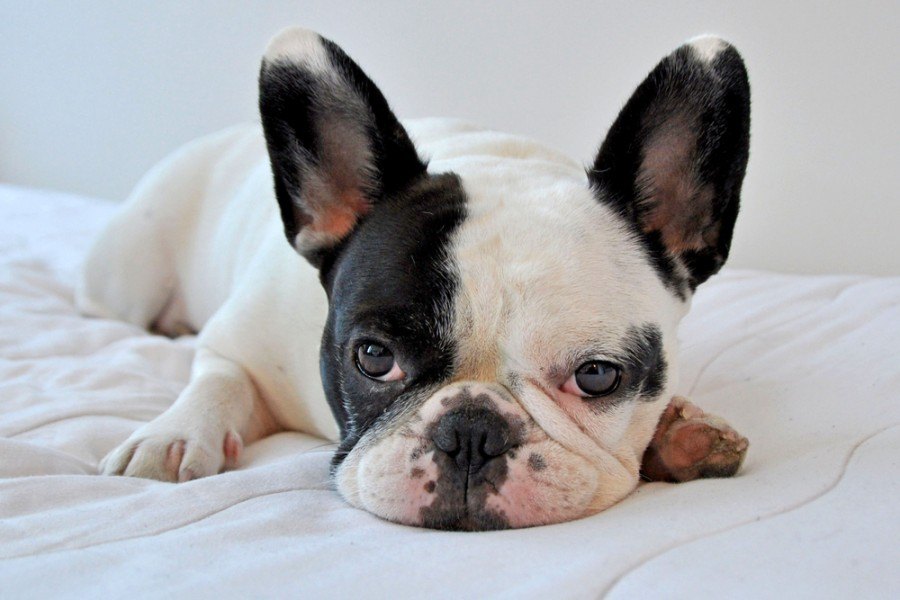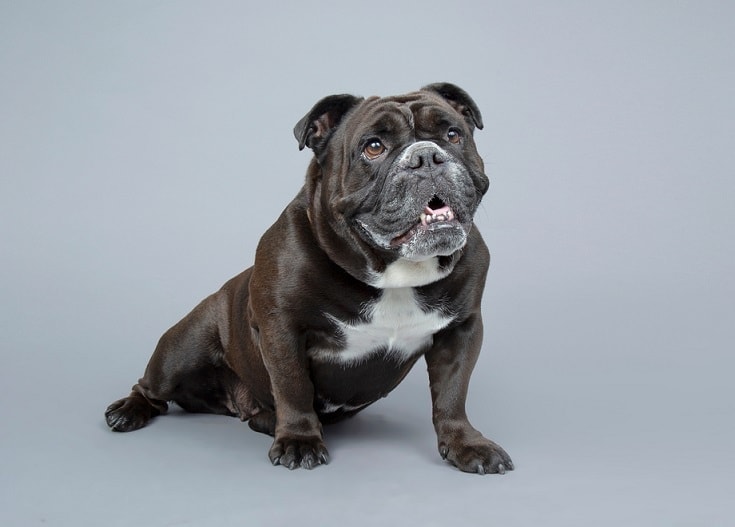Are Bulldogs Hypoallergenic? Recommended Breeds & FAQ

Updated on

Affectionate, loyal, and known for their stocky physique and wrinkly snout, the Bulldog has long since been a favorite for dog-lovers around the world. These breeds have a reputation for being great family pups, whether you’re referring to the stocky, muscular English Bulldog or the more petite French Bulldog. But as friendly as these canines are, are they good for allergy-suffering dog lovers? The answer is, no, Bulldogs are not hypoallergenic.
Are Bulldogs Hypoallergenic?

Based on the Bulldog’s appearance, you might assume that they are hypoallergenic because of their short hair. Dogs with short hair are often assumed to be hypoallergenic because of the simple notion that less hair means fewer allergens. The reality is that hair is only one of the culprits that harbor allergens in dogs, especially in the Bulldog’s case.
Why Aren’t Bulldogs Hypoallergenic?
While short-haired dogs are commonly preferred by allergy sufferers, it is not the hair that usually produces the allergens. All dogs produce various proteins and these are what trigger allergies. They are spread through hair, saliva, mucous, urine, and dead skin cells.
Compared to other dog breeds, the Bulldog is not a heavy shedder. However, they shed constantly throughout the year, meaning dog hair will be floating around and spread all over the house year-round.
This breed is also known for their drooping face, caused by their excessive wrinkles and folds. Unfortunately, this is also the biggest factor that causes Bulldogs to be high-allergen-producing dogs. These folds can trap all kinds of allergens and constantly require cleaning to avoid any skin complications.
The Bulldog’s saliva is also heavy in producing allergens due to their excessive drooling, which puts the Bulldog in the same ballpark as the St. Bernard when it comes to producing allergens through their saliva.
How to Reduce Allergy Triggers If You Have a Bulldog
Bulldogs are high-maintenance dogs, and good overall dog hygiene can help reduce allergy triggers. Constant grooming can help reduce the spread of allergens by keeping the dog’s fur coat, mouth, and teeth clean. Wiping their wrinkles and folds once or twice daily can help reduce the buildup of dirt on their face and reduce the risk of skin infections.
Keeping the house clean and sweeping out dog hairs are good practices. It is also recommended that allergy sufferers implement “no dog zones” in certain areas of the house to avoid allergy triggers.

What Dog Breeds Are Considered the Most Hypoallergenic?
No dog breed is purely hypoallergenic. In fact, all dogs produce allergens, just some more than others. Hypoallergenic dogs may be considered less allergenic because of the smaller amount of dander in their hair or because they do not shed as often as other dogs. Here are breeds that fall into the hypoallergenic side of the spectrum:
Breeds to Avoid If You Are Allergic to Dogs
Like the Bulldog, some dogs produce more allergens for different reasons, such as the type of fur that they have or the high amount of shedding or drooling that they do. Here are breeds that are considered high-allergen-producing dogs that can cause allergy triggers:
Final Thoughts
French and English Bulldogs are both ideal family dogs. They are friendly and great with kids and have unique and confident personalities. However, the Bulldog may not be the best dog breed if you are an allergy sufferer. As friendly as these dogs may be, they are not so friendly when it comes to allergy triggers. The Afghan Hound or Hairless Terrier may be better alternatives.
- See also: Blue French Bulldog
Featured Image Credit: Lukas Maverick Greyson, Shutterstock











